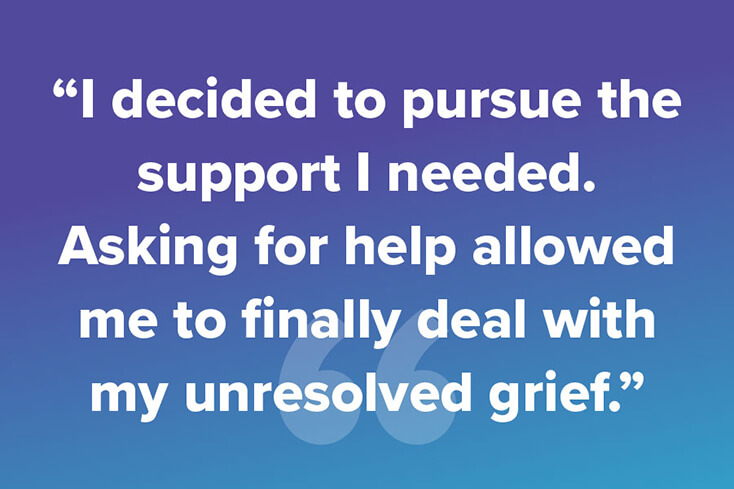September 23, 2021
By Theresa Foley
If you or someone you know is experiencing a mental health, suicide or substance use crisis or emotional distress, reach out 24/7 to the 988 Suicide and Crisis Lifeline (formerly known as the National Suicide Prevention Lifeline) by dialing or texting 988 or using chat services at 988lifeline.org to connect to a trained crisis counselor. You can also get crisis text support via the Crisis Text Line by texting NAMI to 741741.

On the morning of March 14, 2015, I lost a piece of my heart. I remember the phone call as if I had received it yesterday. The words my aunt spoke over the line couldn't have been more traumatizing.
"Matt's dead. He killed himself,” she said.
With those words, my world fell apart around me.
Soon after Matthew’s death, I’m ashamed to admit, I felt incredibly resentful. As much as I tried, I couldn't understand what led him to such a painful conclusion.
Gradually, I came to realize that Matt had been struggling with mental illness. Had he been healthy and received the treatment he needed, I believe he would not have made this decision. After sustaining two traumatic head injuries, his mental and physical health had been compromised.
For a long time, I blamed myself for his death. How did I not know that he was suffering? Why didn't I call him more?
The night Matthew died, I had intended to call him. A few friends and I were headed to a bonfire in the woods. Remembering the summer before when we'd tromped through those same woods, I reached for my phone to call him. For some reason, I couldn't find his number. Not giving it a second thought, I resolved to call his mother in the morning for his number. By the time I spoke to my aunt, it was too late.
Dealing with his death took its toll on me. While there is no time limit on grief, I found myself unable to heal. Over time, my family tired of hearing me talk about my cousin, so I began covering up my heartache.
Not knowing who I could turn to, I slowly spiraled downward into a depression. I threw myself into my work, and I began to play the role of a happy individual, putting others’ well-being before my own. But I ignored the fact that I hadn't been myself in a long time.
After almost four years of putting up this facade, my world came crumbling around me one night at work. I don't remember much of what happened, but I do remember the delusions that surfaced. In each one, a family member took their own life. I even remember sweeping the floors at work while talking to myself in a state of delirium.
All of my suppressed grief, it seemed, took the form of a mental health episode. Eventually the police and an ambulance arrived.
Waking up the next evening in the hospital, I remember being scared and confused. My first thought was that I needed to act “normal,” to avoid commitment to a mental health facility. After spending 36 hours under surveillance, I was given pamphlets for a few mental health treatment centers and released.
Fearing another breakdown, I decided to pursue the support I needed. Asking for help allowed me to finally deal with my unresolved grief.
Now, I can say that I am in recovery. For the first time in almost six years, I am in good spirits. I'm learning to be vulnerable and share my challenges, a task that has never come easily to me. If I find myself unable to vocalize what's weighing on my heart, I have taught myself to write it out.
While I'll never fully understand why my cousin ended his life, I've recognized that I can recover even without this clarity. While I may never fully heal from losing him, I will always treasure the memories we had together and keep them close to my heart.
The National Suicide Prevention Lifeline
800-273-8255 (deaf/hard of hearing options can be reached at 1-800-799-4889)
Crisis Text Line
Text NAMI to 741741
Veterans Crisis Line
800-273-8255
The National Suicide Prevention Lifeline (ESP)
1-888-628-9454
TrevorText
Text TREVOR to 1-202-304-1200
The Trans Lifeline
1-877-565-8860
We’re always accepting submissions to the NAMI Blog! We feature the latest research, stories of recovery, ways to end stigma and strategies for living well with mental illness. Most importantly: We feature your voices.
LEARN MORENAMI HelpLine is available M-F, 10 a.m. – 10 p.m. ET. Call 800-950-6264,
text “NAMI” to 62640, or email. In a crisis, call or text 988 (24/7).